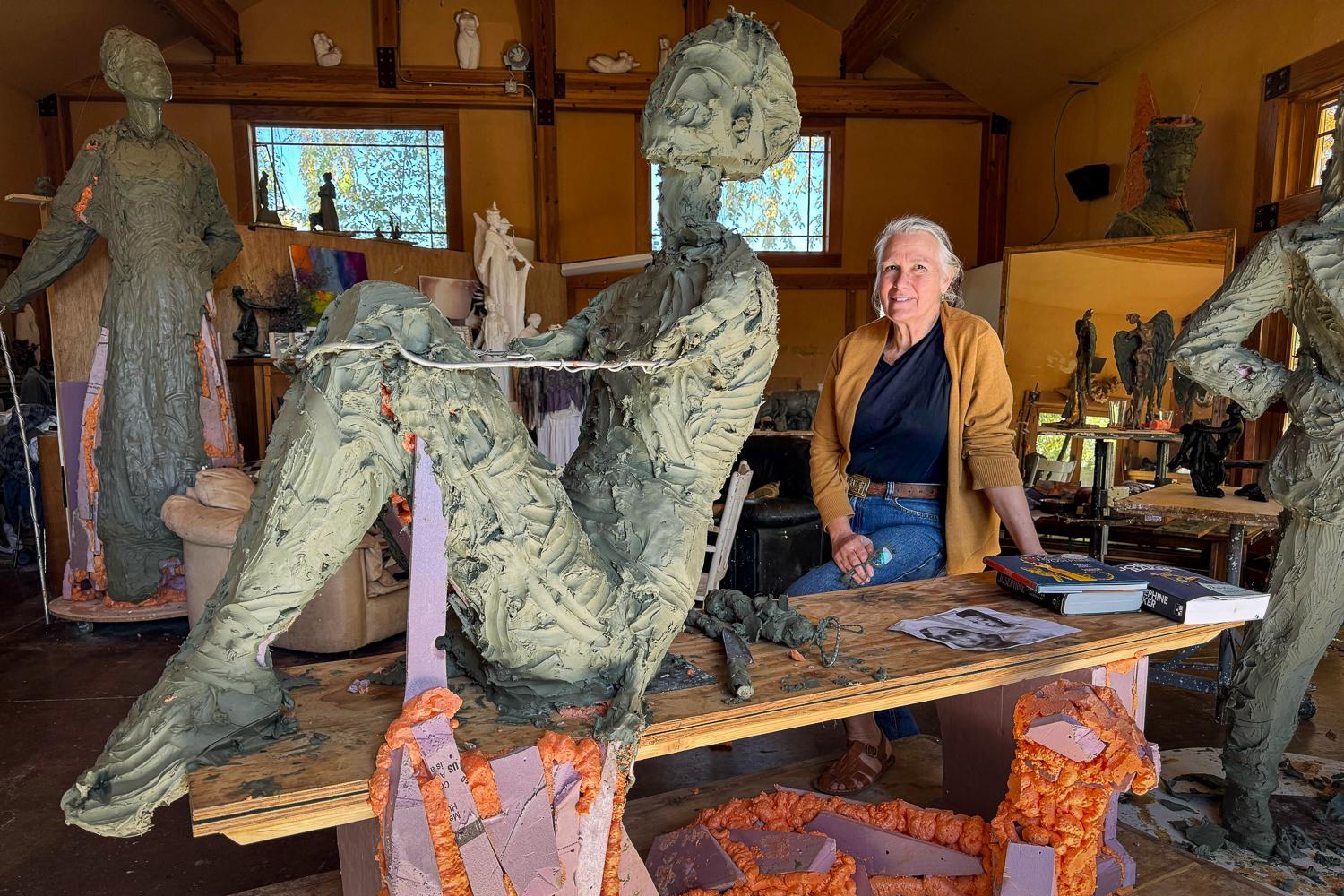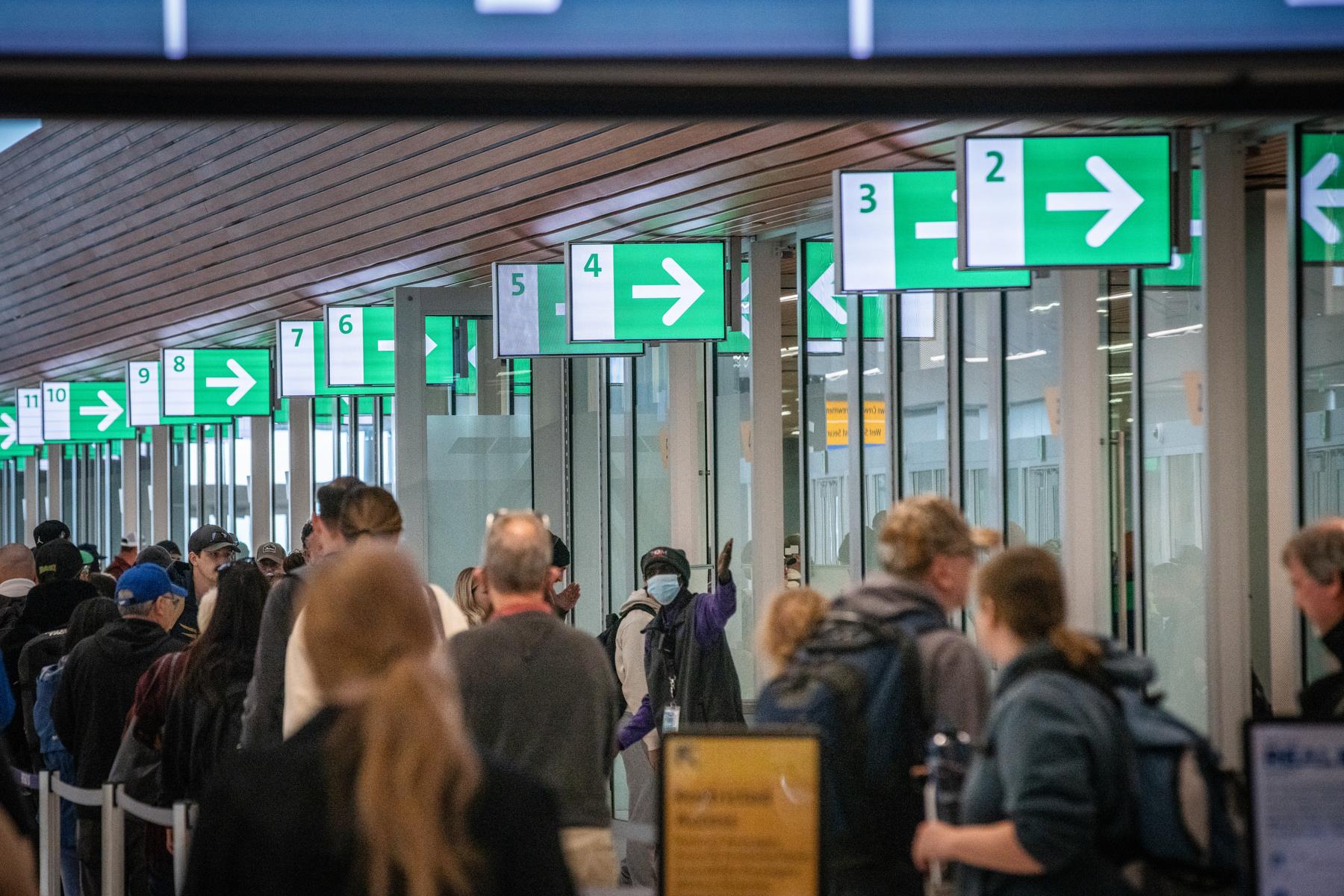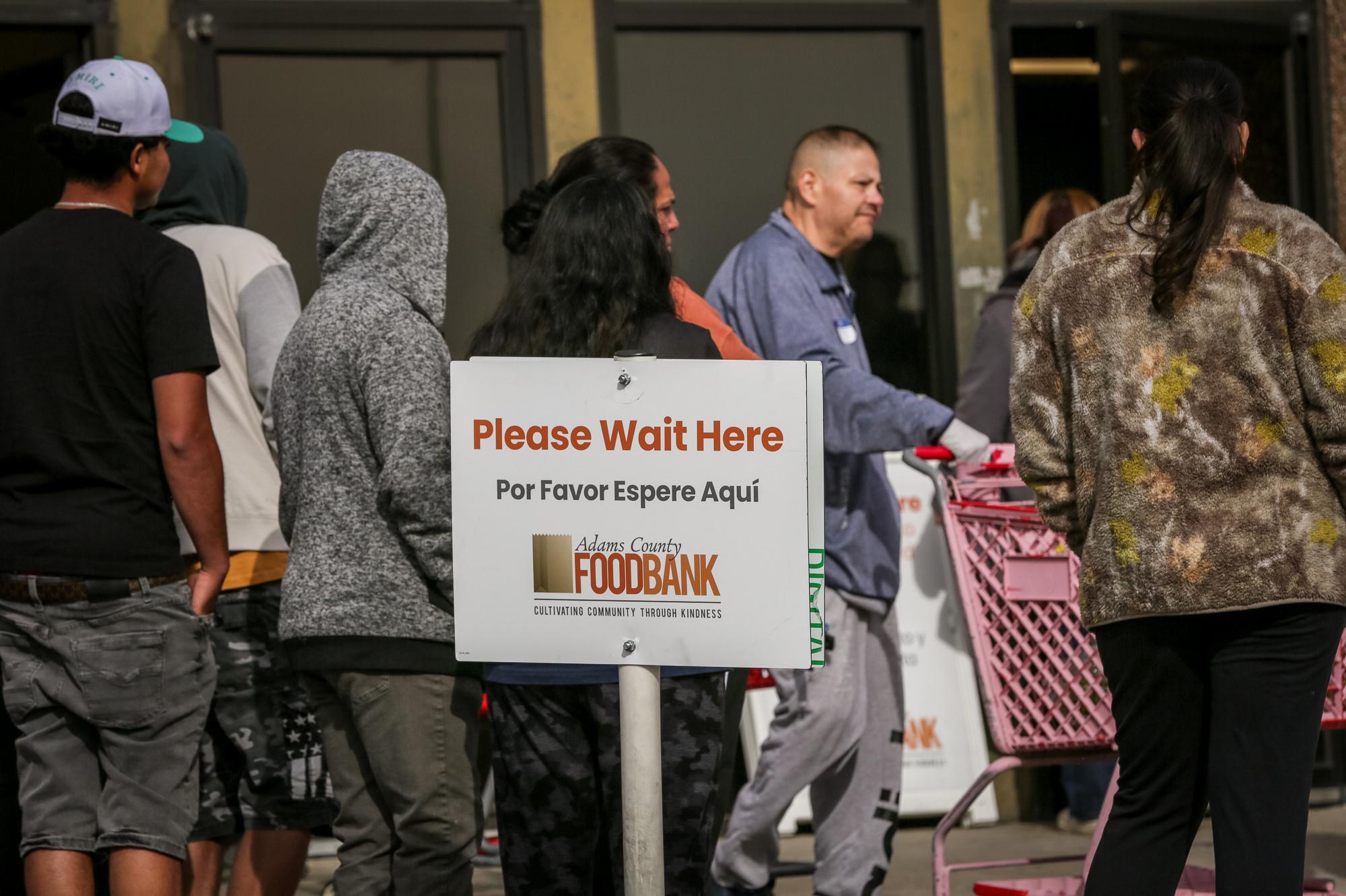
 Republican U.S. Sen. Cory Gardner will not say whether he supports a possible effort to repeal the Affordable Care Act without legislation to replace it. Senate leadership has proposed a vote on a straight repeal of the ACA after a GOP replacement bill failed to get off the ground.
Republican U.S. Sen. Cory Gardner will not say whether he supports a possible effort to repeal the Affordable Care Act without legislation to replace it. Senate leadership has proposed a vote on a straight repeal of the ACA after a GOP replacement bill failed to get off the ground.
“I don’t know that’s something that’s going to be coming up, and I don’t want to speculate on how I would vote on a bill that we don't know if it’s going to be there or not," Gardner said. “What I know we need to work on is finding relief for people suffering under Affordable Care Act and that’s what I’m committed to do.”
Gardner has voted to repeal Obamacare in the past. But more recently he has called for a gradual transition out of the ACA to protect those who gained Medicaid coverage under President Barack Obama. The program now covers more than 70 million people.
“I just think it’s important that we recognize we have to make sure that this is sustainable. Because in 10 or 20 years, if the money is not there, then what happens to those people truly in need?” he said. “We’ve got to make sure the safety net continues.”
Gardner said he wants states to have greater flexibility in how they manage their Medicaid programs.
Colorado’s Democratic Sen. Michael Bennet told CPR News last week he wants to increase competition among insurance companies as one way of improving the ACA. Among his ideas: Customer pools should include a mix of healthy and sick patients so insurers can make money, a public option would allow people to buy into Medicaid and Medicare programs, and the program should also require the medical industry to provide more information about real costs to consumers.
Gardner addressed the Western Conservative Summit in Denver over the weekend, but did not make a commitment about how he might vote on repealing the ACA without a replacement.
Transcript: Vic Vela Interviews Cory Gardner:
Ryan Warner: This is Colorado Matters from CPR News. I'm Ryan Warner. This is your last chance. That's President Donald Trump's message for Republican lawmakers on repealing and replacing Obamacare. Trump tweeted it this morning. The US Senate will move forward with a key vote this week on a Republican health bill but it's a mystery what exactly they'll vote on. One option may be a repeal without immediate replacement. It is something Republican Senator Cory Gardner of Colorado has supported in the past. CPR's Vic Vela asked him if he'd vote for a pure repeal now. Senator Cory Gardner: I don’t know that that's something that's going to be coming up and I don’t want to speculate about how I would vote on a bill that we don’t know if it's going to be there or not. What I know we need to work on is a way to find relief for people who are suffering under the Affordable Care Act and that's what I am committed to do. Vic Vela: Well Senator McConnell has suggested that he may bring that bill forward. You voted for a full repeal in the House and in the Senate. Is there a difference really between now and then? CG: Well again I don’t know if that's what we're going to be voting on and I don’t want to speculate what may or may not come up for a vote. I do think we have to replace the affordable care act with something that is going to increase the quality of care, decrease the cost of care and I think that's what we ought to focus on. And right now it is unclear what that would be and negotiations continue and I look forward to being a part of those negotiations to make a better bill emerge from all this. VV: Do you still support the repeal of Obamacare? CG: I think we need to repeal and replace Obamacare and I will continue to support that effort and I think we should continue working a bipartisan fashion. I hope we can get Democrat support for an idea because too many people are being hurt by higher insurance costs and in Colorado alone you can see that the reports, just last week alone saying that our insurance premiums are going to rise by an expected 27% on average next year. VV: Senator, can you blame people who may question the sincerely of Republicans around repealing Obamacare? That it's easy to vote for a repeal when Obama is president because he'll veto it anyway but it's a whole other thing when you vote on something that can actually become law and a massive program ends. CG: Well I think people are frustrated by what they were promised what would happen under the Affordable Care Act and that's why we have to get our work done. When the Affordable Care Act passed, it was promised that it would lower people's insurance by $2500 per family. That turned out not to be true and they were promised you could keep your doctors if you liked your doctor. Hundreds of thousands of people lost the doctors they were promised they could keep. And so I think they're tired of that broken promise of Obamacare and that's why we have to make sure that we put something in place that drives down that cost of insurance. VV: Speaking of promises, Republicans promised to repeal Obamacare. Would that be a failure on the part of Republicans if this doesn't get done? CG: Well I think hopefully we will come up with an agreement where we can have a repeal and something in its place. But no matter what happens, this conversation is going to continue as long as the Affordable Care Act continues to hurt the people of America. Because if there is a failure, those insurance premiums in Colorado and across the country will continue to rise until something is done. VV: President Trump has said the best thing to do right now is let Obamacare fail. Do you agree with him? CG: You know I really do think we need to work on a replacement. That's what I've said and I hope that that's what we can achieve in the next week and if not, in the next weeks to come. But I do think we have to have something in place that provides relief to the American People and that's what I'll continue to fight for. VV: Has the President provided enough leadership on healthcare? CG: I thought the meeting we had at the White House last week was a productive meeting. And again we've got to get our jobs done in Congress, that's the House and the Senate, I hope both sides of the aisle are engaged in this conversation and that's the most important thing, not trying to point fingers about who is or who isn't providing leadership. VV: Senator, the recent Republican health care effort that failed to get off the ground in the Senate would have made sweeping changes to Medicaid. Medicaid right now covers more than seventy million people. And a lot of Republican governors have pushed back against cuts to the program. Do you believe cutting Medicaid's population is the right way to bring improvements to Obamacare? CG: Well I think what we've tried to do in Medicaid and what I've talked about is making sure that we make Medicaid sustainable. I was very concerned when the Medicaid expansion occurred that it was going to be unsustainable, either at the federal level or at the state level. And I'm very concerned that it's, that that instability means that it may not be there as much for the people who truly need it. When the able-bodied adults were allowed into Medicaid expansion, it put pressure on the sustainability of that program. So what I hope we can do is give the states greater flexibility in managing their program, greater tools. I'm waiting for Seema Verma, the head of HHS, excuse me, the head of Medicaid at HHS to provide me with some numbers and some option that they are working on at HHS that could provide alternatives for Colorado. And I just think it's important that we recognize we have to make sure that this is sustainable because in ten or twenty years, if the money is not there, then what happens to those people truly in need. And we've got to make sure the safety net continues. VV: Well Senator, a lot of those people in need who benefitted from the expansion are in rural Colorado. Actually rural Colorado accounts for nine of the top ten counties that saw numbers increase under the expansion. You're from rural Colorado, you're from Yuma. A lot of folks who voted for you are now on Medicaid because of the expansion. Do you worry that decreasing the expansion will have detrimental effects in rural areas? CG: Well look, I think we ought to be talking about how we're getting people into better paying jobs as well instead of just trying to say that gosh, I wish we could put everybody into Medicaid. What I think we ought to do, is say, what we ought to do, is to say how do we get better paying jobs, jobs with benefits, jobs with opportunities to have better health care than we have today. Then we can give the state's better flexibility in how to maintain or manage a Medicaid program that is sustainable to help those people who are truly in need. Whether that's rural Colorado or urban Colorado, we shouldn't be just saying hey, let's make sure we fit as many people into Medicaid as possible when there are other alternatives and better options for care available. VV: Senator, you have a lot of people right here in Colorado who want to talk to you about healthcare. How are you hearing form people right now? CG: We've held over 400 meetings, my office has, I have with constituents from across Colorado. We've done tele-Townhalls where we've reached out to over 50,000 people to hear their concerns about healthcare and issues facing them directly. We continue to meet with people and our offices across the state are busy taking calls and taking the opinions of Coloradans across the four corners of our state and that's what I will continue to do. VV: Do you intend to hold a in-person town hall anytime soon? CG: I've held over 100 town halls in the time that I've been in Congress. And we've held tele-townhalls where we've heard from 50,000 people. We've held meetings with them, employees around the state of Colorado and will continue to do that just as we continue to take over 400 meetings on healthcare. VV: Senator if you were going to design a bill to fix what you're saying isn't working on Obamacare, what does that system look like? CG: Well I think everybody admits that the individual insurance market has collapsed under the Affordable Care Act, so we have to make sure that the individual insurance markets are stabilized. We need to make sure that we craft a bill that creates that stable market. Things like a long term stability fund a big part of that, risk pools are part of those conversations, and then giving states greater flexibility in how they manage their insurance programs. Insurance across state lines, association health plans, those are part of it. I would like to see us protect pre-existing conditions, and so we can structure a bill that drives down the cost of insurance while protecting pre-existing conditions. I think that's got to be a part of it. I've worked on efforts to help change language as it relates to children with disability and I think we've made some good progress there and will continue to. VV: Well Senator, how do you get to 50 votes when you have so many, you have moderates, you have conservatives in your own party who can't agree and you guys have the majority. How do you get there when you say one thing that you'd like to see in a bill, and another Republican Senator says something totally different? CG: I think you've just described the difficulties of the legislative process and that's why negotiations continue, but at the end of the day, we have to have a bill that can find that support. That's why, at this moment, those negotiations do continue, because I don't think those votes are there yet. VV: Okay. On North Korea Senator, you have talked about what's happening on the Korean Peninsula as a grave threat to the safety of the United States. Can you talk about what you mean? CG: North Korea, on July 4th, launched an intercontinental ballistic missile for the first time. Based on the time it was in the air and the trajectory, we believe that it could reach the states of Hawaii and Alaska. That means that, these states are now in the nuclear shadow of North Korea. We know they have nuclear warheads. We know they're developing more, and now the question is, do they have the capacity then to actually deliver that nuclear warhead to the United States homeland. This is a very dangerous situation with a madman in Pyongyang who has said that he would use these weapons on the United States. It's creating an unstable situation in the entire peninsula of South Korea and our regional allies like Japan, that could lead to a greater arms race. Our goal has to be peaceful denuclearization of North Korea and we have to put pressure on not only North Korea but China to stand up to them and help us in this effort. VV: Well, and actually you've been critical of the Trump administration for not being strong enough on China to help with North Korea. What do you think the administration should do here? CG: I have criticized the administration for not doing enough. I was pleased last week when they did announce some sanctions on a financial institution and other businesses in China, and so I was pleased that the administration is starting to take those steps. It does sound like they are starting to ratchet up the pressure on North Korea but more has to be done. China controls 90% of North Korea's economy. There's a handful of companies that control 30% of North Korea's economy. If they were serious about helping denuclearize North Korea, they would step up and show us how they're willing to help. VV: Senator, thank you for your time today. I appreciate you talking. CG: Hey, thanks for having me. Have a great day. RW: Colorado's Republican US Senator, Cory Gardner. He spoke Friday with my colleague, Vic Vela. You can hear our interview about health care with his Democratic colleague, Michael Bennet, at CPRNews.org. This is Colorado Matters from CPR News. |
Read More: With So Repeal Options In Play, Confusion Reigns (via NPR)









